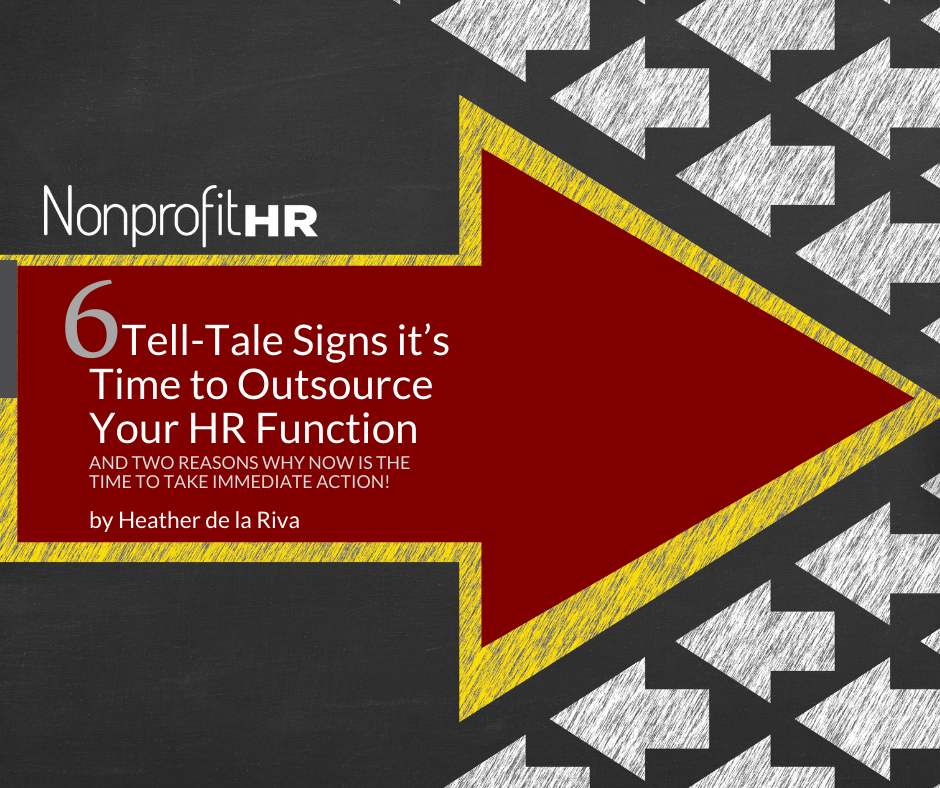WTOP: 5 ways nonprofits can…
The winter holiday season has a way of getting peoples’ hackles up. Maybe it’s the anxiety of seasonal expenses, traveling, time with relatives and in-laws, and unpredictable weather on top of the usual stressors of work and life in general. Somehow, there’s never enough time to get things done and it’s a mad dash from Thanksgiving to the New Year in hopes of getting all the ends tied up before the ball drops and we start over at 01/01. Regardless of the reason, there just seem to be a lot more Scrooges and Grinches around than Tiny Tims and Cindy Lou Whos. As you can imagine, or may be in the midst of seeing first-hand, this can lead to many HR issues. I asked some of our HR experts about the most common issues that come up around this time of year and their recommendations for avoiding and resolving them.
Issue: Holiday/Religion-related time off. Whether an organization is explicitly faith-based or not, most employers pre-determine holidays when the office will be closed. Often, this includes Christmas day. Statistics suggest that this is unlikely to offend you, regardless of your religious affiliation (or lack thereof). According to a 2010 Gallup poll, up to 93% of Americans participate in Christmas activities in some form (exchanging gifts, gathering with family/friends). Often times, however, practicing members of other religious groups would prefer to work Christmas day (or another faith-based holiday that they do not celebrate) and take the Day of Eid or Diwali or Rosh Hashanah off. According to some leave policies, the day of Christmas when the office is closed is a paid holiday while taking another non-sanctioned day would come out of a PTO bank. This can get into a sticky HR area if these decisions are handled in a way that is felt by employees as religious discrimination.
Recommendation: Include provisions in your leave policy to allow for flexibility when it comes to faith-based religious observances. This includes accommodations for daily prayer time, if needed. Make your staff aware of these changes and be clear about how these days off will be handled. Be consistent in the way that you handle these requests. Be sure to go over the way that religious holidays are handled during onboarding of new hires.
Issue: Holiday decorations. As of December 2nd, it seemed like all the office buildings in DC had put up Christmas trees and other festive decorations in the lobbies. While this is lovely for those of us who celebrate Christmas, I wonder how this strikes my Jewish coworkers or our Muslim clients as they enter the building. According to PewResearch, as many as 22% of Americans affiliate with religious groups that do not traditionally celebrate Christmas. This issue comes down to sensitivity and can become a harassment or work environment challenge if handled poorly.
Recommendation: Discuss holiday practices with employees before there is an issue. Establish the level of comfort with people decorating their desks, doors or the whole office. Keep in mind that some people may have complaints about decorations that have nothing to do with religious affiliation. Find ways to compromise so that everyone feels comfortable and respected in their workspace. Mutual respect is critical to having a strong organizational culture.
Issue: Holiday parties. It is very common for offices to organize some kind of holiday celebration, whether it is a relatively casual gift or cookie exchange, a happy hour or even a full-blown party. These are often presented as a show of gratitude from leadership to employees for a year of hard work. However, these occasions can easily backfire or get out of control, especially when mixed with alcohol. As with decorations, there is the issue of sensitivity to contend with. When you add partying to the mix, you add liability issues as well.
Recommendation: As with any business decision, think about risk management. What is the goal of the party? Is there a way that you can achieve your goal and minimize the chances of behavior getting out of control? If the goal of the party is to thank your employees, they will not be feeling the love if someone ends up getting fired because they made a bad decision at the party. Perhaps a personalized card from their supervisor thanking them for their contributions would be a better solution. If you are looking to give employees a way to relax and hang out casually, you might arrange for a lunch or dinner together on the company’s dime. If that is not an option within your budget, you could have a potluck and give employees an opportunity to show off their cultural heritage or baking prowess.
Did we miss your question? Get in touch with us, we can help!





























